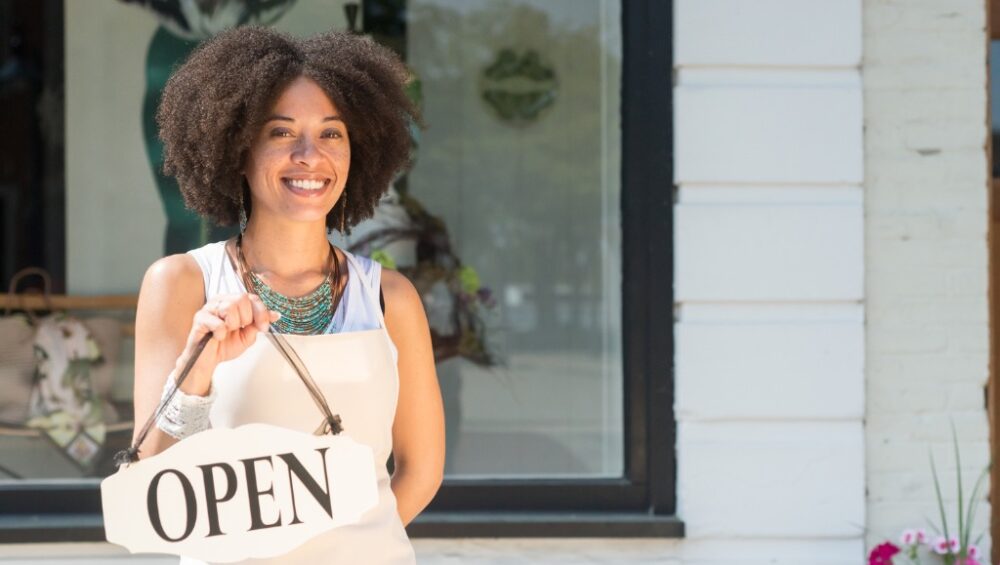Brookings’ publishing of Lyneir Richardson’s Playbook for Buying Back the Block Through Community Real Estate Ownership is a milestone for the blended philanthropic and investment market community we gather at Neighborhood Economics conferences. The playbook offers a clear and replicable plan to repair local economies in cities across the country.
The playbook, which is a guide for any community, comes a year after Richardson and Brookings tried out the concept in a lab https://www.brookings.edu/articles/introducing-the-buy-back-the-block-lab-building-black-wealth-through-community-real-estate-ownership/. Now they’ve come with a step by step process that will enable any community working on the racial wealth gap to replicate it. It’s already being implemented in Detroit, Cleveland and Baltimore. And Richardson’s business Chicago Trend https://www.chicagotrend.com/TREND-Inclusive-Ownership-and-Acquisition-Strategy recently got a contract to replicate it in Selma Alabama, near the site of Dr. Martin Luther King’s Bloody Sunday http://calendar.eji.org/racial-injustice/mar/7 march over the Edmund Pettus Bridge in 1965.
Ownership is distributed through the community by a crowdfunding sidecar that makes it possible for people to become owners of commercial real estate for as low as $100.
“People feel differently about the block where they live if they own part of the block, “ Richardson said.
In a 2022 analysis, Brookings scholars found that few Black households own commercial real estate (CRE): Only 3% of Black households own nonresidential CRE, compared to 8% of white households. For households that do own CRE, the average white household owns $34,000 of it, compared to just $3,600 for the average Black household.
Andre Perry, of Brookings, has written and spoken extensively on the power of buying back the block. https://youtu.be/re76OxyGH8c?si=EOgjJ8wOr31yGzG1 His book, Know your Price, is a brilliant analysis of the racial wealth gap as seen in his own home town. https://www.brookings.edu/books/know-your-price/
Why does this matter? Because owning commercial real estate is one of the fastest paths to create the appreciating financial assets that build intergenerational wealth, the missing rich uncles and aunts that white-led startups draw on before they are ready for institutional funding. The lack of that family wealth is what keeps 90% of Black-owned businesses stuck as sole proprietors, not able to add the fourth employee. That means they are not able to access the loan funds set up by Community Development Finance Institutions (CDFI’s) because they don’t have the collateral required or the revenue to make the monthly loan payments.
Owning commercial real estate can, over time, create the friends and family funding very small Black-owned businesses lack. It’s foundational along with funds that target the friends and family gap explicitly like Eagle Market Streets’s Community Equity Fund https://app.catacap.org/invest/32, created in partnership with Neighborhood Economics.
The Buy Back the Block playbook walks through all the steps to make it happen, but each step is unique to its place and requires pulling another tool or module off the playbook’s shelf to make it work with the specific barriers, assets, and culture of that city.
With the success of the lab and the rolling out of the playbook, Richardson can bring the system to any community for only about $65,000.
Though he works in the space of philanthropic foundations’ catalytic investments, which is often weighted with long and complex theories of change, Richardson’s theory of change is simple. “The goal is to make it easier for more Black people to own commercial real estate,” Richardson said. “If more Black people own real estate, we will have succeeded.”
Other southern cities Richardson mentioned were Memphis and Birmingham–places with large Black populations where this could work.
Richardson may speak at the Neighborhood Economics entrepreneurship focused smaller conference in Asheville this fall, https://neighborhoodeconomics.org/asheville/. But, he hopes that by our larger, national conference next spring in Chicago, he will have several cities ready to present their progress.

